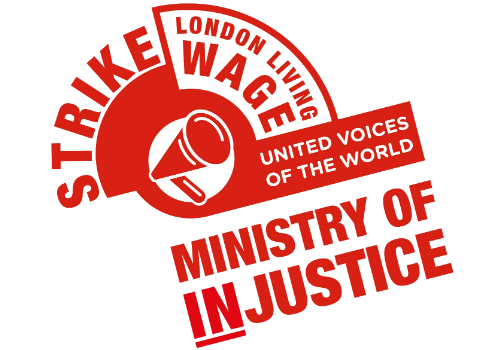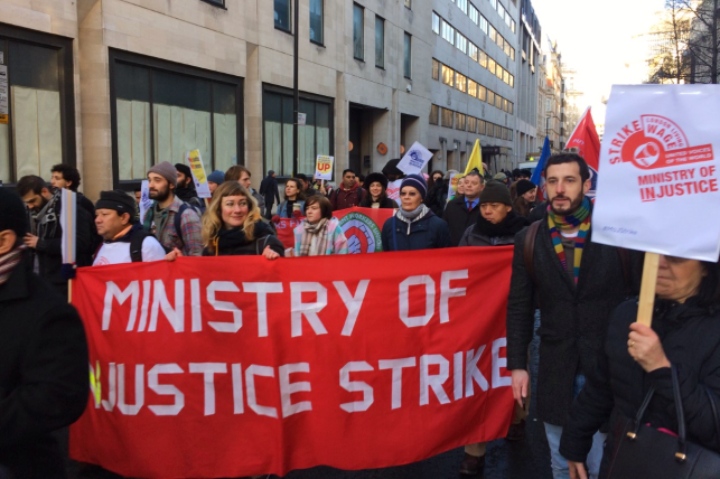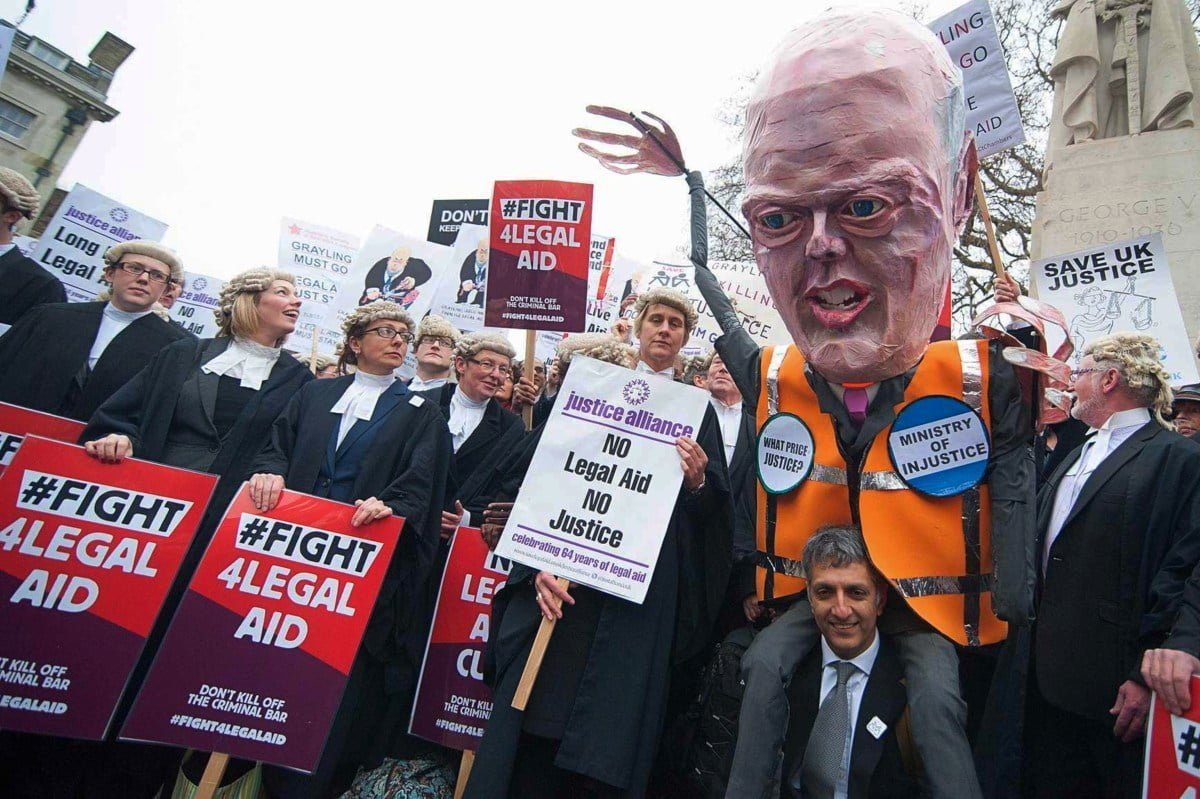Important steps are being taken to unionise workers in the legal sector, where conditions have been viciously attacked as a result of Tory austerity. Legal workers should unite with the rest of the labour movement to fight the cuts.
In the last few weeks, the early stages of unionisation of legal sector workers has begun with the foundation of the Legal Sector Workers United union. The union aims to bring together legal professionals (such as solicitors, barristers and paralegals) with support staff within the sector (such as cleaners and building security staff) in order to improve conditions and act as a united voice.
The stereotype of those who work in the legal sector is like the characters in the well-known TV series Suits, with high pay and a party lifestyle. While this may still be accurate for some (those at the very top of the biggest commercial law firms can ‘earn’ up to £4 million per year), the reality for the majority is a cycle of low pay, long hours, and exploitation. For those who work as paralegals or trainee solicitors, the choice is often between long hours (100 hour weeks are not unheard of in some law firms) or pay that is hardly above the minimum wage.
With law graduates facing a saturated job market, the sector is ripe for exploitation of those younger workers who are desperate for a stable career. Unpaid internships have become commonplace, with one barristers chambers coming under criticism recently for advertising an unpaid internship of six months. Such experience is clearly out of range for all except those from wealthy backgrounds.
That being said, it would be inaccurate to believe that the anger felt by legal professionals is purely down to pay and working conditions. Many feel that the entire future of the justice system is at stake.
Injustice system
 Under years of Tory austerity, the budget for the Ministry of Justice has decreased by 40% since 2010. As a result, a two-tier justice system has emerged between those with the financial resources and those relying on the legal aid system.
Under years of Tory austerity, the budget for the Ministry of Justice has decreased by 40% since 2010. As a result, a two-tier justice system has emerged between those with the financial resources and those relying on the legal aid system.
Cuts to the legal aid budget have generated much media coverage, with an estimate that the legal aid budget has decreased by £1 billion since 2005. The impact of these cuts has been catastrophic, with some entire counties no longer having access to legal aid solicitors in certain areas of law, for those few who still qualify for legal aid.
With many no longer qualifying for legal aid, there has been a significant rise of people representing themselves in court. Aside from the obvious difficulties in some cases (for example abusers questioning their victims in court), there is a much-increased likelihood of miscarriages of justice and unjust outcomes.
As an example, the government’s own research found that 13% of defendants appearing in the magistrate’s courts had no lawyer. This has even resulted in complaints from judges, many of whom are worried that their role as a ‘neutral arbiter’ is being compromised by having to help those representing themselves (as far as judges ever can be ‘neutral’ within the capitalist state).
Criminal cuts
 Since 2010, the budget for the Crown Prosecution Service (the government body that prosecutes those accused of committing crimes) has fallen by 27%. This is despite the fact that its workload has gone up, particularly with the rise of historic sexual abuse allegations.
Since 2010, the budget for the Crown Prosecution Service (the government body that prosecutes those accused of committing crimes) has fallen by 27%. This is despite the fact that its workload has gone up, particularly with the rise of historic sexual abuse allegations.
This has resulted in cuts to pay for those external barristers who conduct work for the CPS. Rates have not increased for over 20 years. After inflation, this means that there have been significant cuts, with some junior barristers receiving as little as £46.50 for a full day’s work.
Considering this, it should come as little surprise that 95% of prosecution barristers (in a recent informal survey by the Criminal Bar Association) have indicated that they would be willing to go on strike and refuse further prosecution work.
The austerity within the justice system can further be seen with the significant delays in many criminal cases. In November 2018, a barrister reported that a trial would not take place until January 2020 due to a lack of available court sittings. For those unfamiliar with the criminal justice system, it is usually considered to be a significant delay if there is a wait of longer than four months for a trial date.
This creates a farcical situation. Courtrooms sit empty. Recorders (solicitors and barristers who sit as judges on a part-time basis) are unable to complete their contractual minimum number of sittings. Meanwhile, those whose entire livelihoods are at stake are forced to wait for significant lengths of time.
Unite and fight
 The fight of legal professionals and the struggle of other sections of the labour movement may seem a million miles apart. But they are united by one thing: a system that is unable to provide decent living standards and a fair society.
The fight of legal professionals and the struggle of other sections of the labour movement may seem a million miles apart. But they are united by one thing: a system that is unable to provide decent living standards and a fair society.
The founding of the Legal Sector Workers United union is an important first step towards linking up these struggles and bringing legal workers into the wider labour movement. Only in this way can we unite and fight to end the problems faced by ordinary people and ensure a fair justice system for all.






